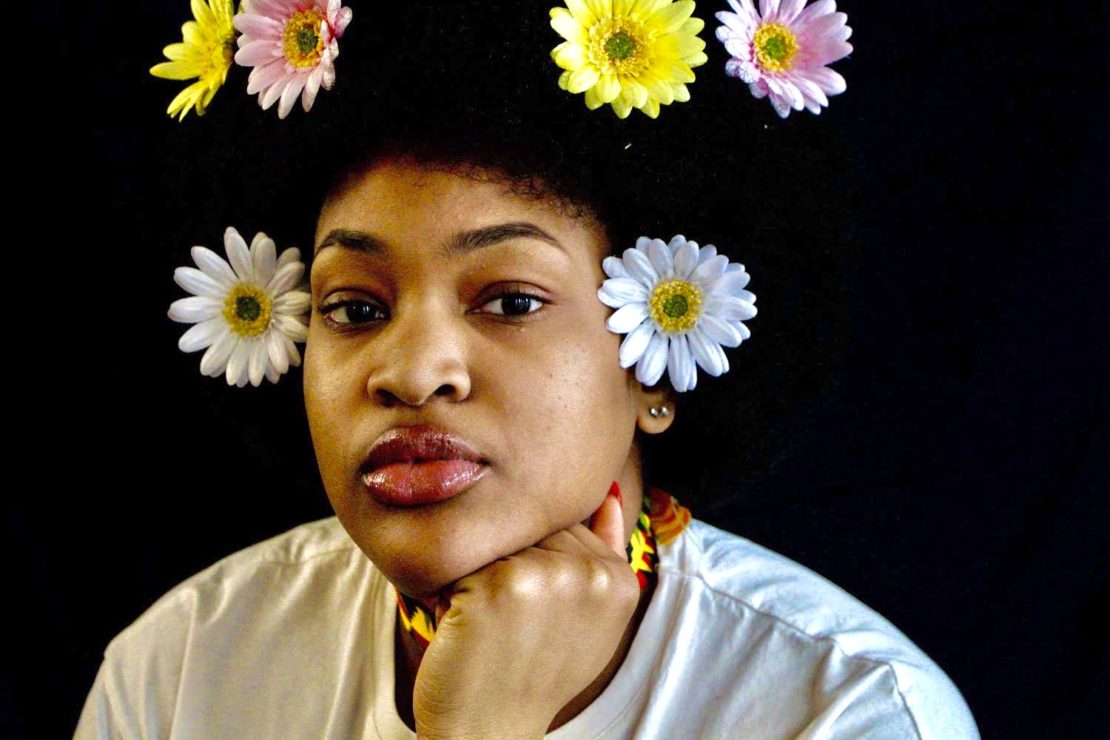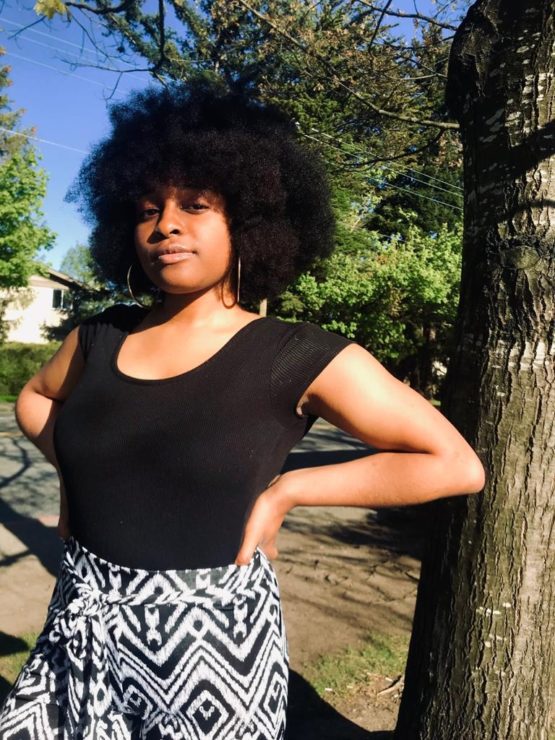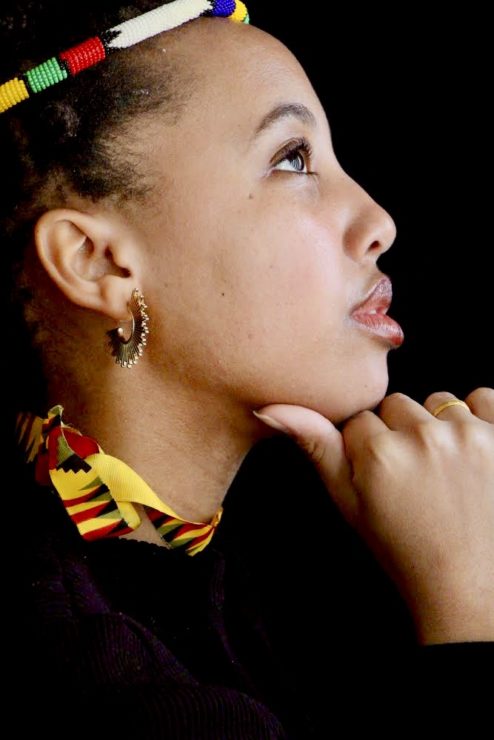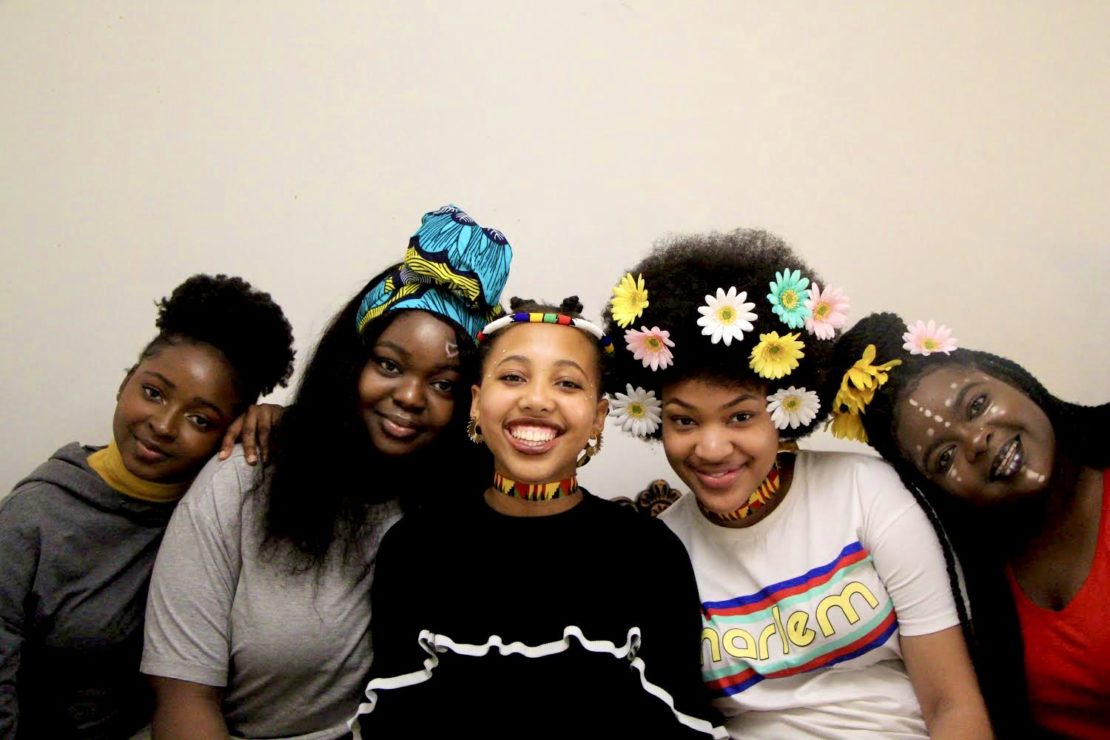Ezeaku brings various aspects of identity to fuel her creative energy in photography and beyond

This article is part of our West Coast Creatives series, which intends to highlight the work of young local artists and the mindsets that drive their creativity forward. From emerging student creatives to established professionals, we’re hoping to spotlight some of the amazing artists our region has to offer.
Divine Mercy Ezeaku’s photography project, Magnificent Shades of Ebony was created for a class in the spring of 2020 by Ezeaku “to convey the beauty of Black people feeling comfortable in their skin.” Inspired by her personal experiences in Canada and Nigeria, Ezeaku uses photography to connect with people that have similar stories and depict the positive way she wants Black people to view themselves.
Ezeaku is a UVic student studying Computer Science and Visual Arts at the University of Victoria. Originally from Nigeria, Ezeaku began using photography as a creative outlet from the stress of university and life in general. She dabbles in other forms of creative expression on the side. The theme of empowerment plays a prominent role in all of her creative work.
Ezeaku spoke to the Martlet about finding her creativity, using her lens to empower Black folks, and building her portfolio as a student. Here’s our conversation.

Q: How did you get into photography?
A: I started photography as a hobby — taking pictures because it was something for me.It was kind of a comfort thing.
I was doing computer science and networking as a combined major. It was really hard for me. I was having a really hard time when I started school so I started taking pictures. It was just like therapy for me. So I switched to computer science and visual arts.
Q: What would you say is the relationship between your background or experiences as a visible minority in Victoria, and your artwork?
A: I’d say the purpose of my artwork is to give joy and comfort. It helps me look at myself in a different way.
Making other people look good in pictures — you kind of see yourself in them. So it’s like, “yeah, this person looks really good.” That means I look really good in my skin. I feel powerful in my own skin. I feel magnificent in my skin.
If my work ever got there [and reached] a big audience, [it would really be for] other people to see themselves in the artwork.
Q: How would you describe Magnificent Shades of Ebony?
Magnificent Shades of Ebony was inspired by my experiences here in Canada and my country of origin, Nigeria. I struggled with embracing everything about my Blackness and being of African descent. As I grew up I struggled with my complexion. I always wanted to have a lighter complexion and straighter hair, mostly due to movies I had watched.
I used photography to depict a positive way I want Black people to view themselves. This assignment has made me connect with people who have similar stories like me and when we share our stories it gave us a sense of belonging.

This process has made me heal from these wounds, I see them as grazes now because I was born with thick skin and I see myself as beautiful, magnificent, equal, Black, and proud. The aim of my project is to help people of different race and ethnicity see their worth and know that they are all equal and hopefully be united before the next generation gets here.
Q: How did the creative direction and concept for the photography project Magnificent Shades of Ebony come about?
A: I started touching on black artists, what they were doing with their work. I started reaching out to almost all my Black friends, even Black people I didn’t know before.
I didn’t have many props prepared ahead of time. So I just said, please if you have it, to bring traditional wear. It was all Black people, including people who were African American, African-Canadian. We had to include every single one of them.
[I told the models,] if you have anything at all that you know portrays Africa, or wherever you come from, just please bring it.
The [flowers] were also used to highlight the relationship between [natural beauty] and human beings.
The models’ hair — some of them I actually did the hair, some other people, they already just used what they had. I just wanted to make sure that hair was present in the artwork, because for Black people, our hair is also part of our identity. And I wanted to make sure that there was diversity in that, too.

Q: Were there any specific experiences that informed your creative work, including Magnificent Shades?
A: It’s a story of, well, [several of my] experiences of racism in Victoria. Both of them are [instances of racial] profiling.
The first time I’ve ever had someone profile me, I didn’t know what it was. Usually in Nigeria, I would say we have bigger problems than, you know, racism. You don’t have much exposure to that type of thing until you’re out of your own country. So prior to these incidents, I didn’t really think so much about racism.
I’d say in Nigeria, to be precise, with so much patriarchy, women are not allowed to speak out. So, now that I have the opportunity, let me say something. I want to make women feel that they’re wanted; that their voices need to be heard.
Q: How have you harnessed your experiences and turned it into fuel for your creative projects?
I felt like [this happens to] a lot of people. But you know, they don’t come out from it. They just, you know, go deeper into the negativity. So like, I’m not gonna look at this as something that’s going to keep making me hurt all the time. I’m going to forgive and keep moving on because definitely, like there’s still a lot of things that are happening today. To have peace of mind not you know, feel like I’m drowning in sadness or sorrow.
So I decided to turn to taking pictures of other people who are like me. This made me realize and see the beauty that we had, and made me reflect: we are actually beautiful no matter what anyone says. I’m gonna try to always look at the positive side of my Blackness.
Q: Are there any other sources of general inspiration that you would say powers you through your studies and creative work?
A: I get my inspiration from my mom actually. One of my hobbies is to cook — I love cooking, and I’m also about to start a business for lip gloss, hair extensions, anklets. So it’s still coming soon, I’m still strategizing.
This interview has been edited for length and clarity.







